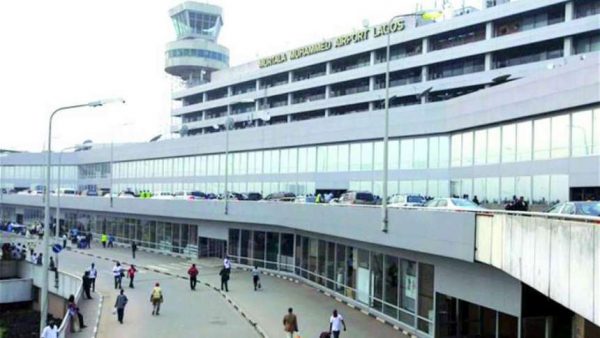Post COVID-19 Era: Massive Job Losses Loom Across Nigeria’s Public And Private Sectors

· Developing competence is better than N50bn CBN intervention – Chukwu
· Port sector to observe lull, export may boom – Nwagbara
· Women will suffer 59% global retrenchment – Anishere
By Kenneth Jukpor
Despite the already perplexed economic situation in Nigeria occasioned by the COVID-19 pandemic, there are indications that mass retrenchment in public and private sector organizations would be recorded across the nation in the post COVID-19 era.
Economic experts assert that the current tough economic terrain as well as the deployment of technology and performance of the streamlined workforce across most sectors would lead to significant job losses after the pandemic.
Recall that top commercial banks as well as oil majors have started downsizing while President Mohammadu Buhari also approved the trimming down of statutory agencies from 263 to 161 on Thursday, last week.
Giving an economic outlook for the nation after the pandemic, the Managing Director of Cowry Assets Management Limited, Mr. Johnson Chukwu said that the impending massive downsizing would not only affect the private sector as public sector workers would also be laid off.
His words: “The reality is that the pandemic has also brought to the fore the emergence of technology and technology is known to be a disruptive development leading to job losses. We never knew we could deploy technology to this magnitude in Nigeria. In the last few weeks, people have realized that they could go about their businesses without human interface. This shows that we have relied too long on human interface for services that never required human interface to be executed. People would want to build on the efficiency they have achieved with the deployment of technology.”
“At the private sector level, there would be cost optimization, efficiency and improvement as a result of more reliance on technology. For the public sector, we have already seen the Minister of Finance, Budget and National Planning, Mrs. Zainab Ahmed reveal that President Mohammadu Buhari has given approval for the trimming of Ministries, Departments and Agencies (MDAs). This means massive job losses would also be recorded in the public sector”
Giving the expected job losses, he argued that it behooves on employees to retrain themselves while organizations that have to let staff go should also train such persons and improve them with new skills.
“These skills would enable such workers be of value to themselves and the society. A lot of people would leave the formal public and private sectors. I would suggest that such people look for opportunities in the agricultural sector and related opportunities”, he said.
He, however, expressed optimism that the nation could record significant economic growth if people improve themselves to remain relevant and valuable in order to create a high level of productivity that would lead to high income levels.
The economic expert also asserted that if entrepreneurial skills aren’t developed, there would be increased social ills and fiscal burden on the society.
He also posited that the class of people mostly affected by the downsizing could determine the response and economic aftermath.
According to him, if most of the dismissed workers are young, the tendency would be that they would easily adapt to the changes and fit into other sectors of the economy while those nearing retirement would have to depend on their pensions to survive.
He advised Nigerians to begin to think outside the box, adopt technology and upscale their competence level to ensure they are of value to themselves and the society.
Noting that the Central Bank of Nigeria (CBN) had made an intervention of N50billion to sustain households and Small and Medium-sized Enterprises (SMEs), he argued that such approach wouldn’t be as successful as equipping people with competence for emerging opportunities.
“SMEs would realize after this pandemic that their standard of service delivery would change and the competence to adjust to such changes will be more significant than money. If they don’t have the competence to operate in the new world order, fiscal interventions will not solve their problems. Money would only serve as palliatives. I’m looking beyond the palliatives to see how we could develop businesses that would compete in this new order”, he argued.
On his part, the Director General, Lagos Chamber of Commerce and Industry (LCCI) Mr. Muda Yusuf noted that the pandemic affected Nigerian businesses in three major ways; lockdown, supply chain and macroeconomics.
He itemized the lockdown and consequent grounding of businesses as the initial challenge for businesses including SMEs in the nation.
“Following the lockdown, businesses including SMEs were grounded yet some have to pay salaries and other maintenance cost despite the fact that they can’t generate revenue. The partial lifting of the lockdown doesn’t affect the entertainment industry, activities that relate to events, musicians, rental businesses, event organizers, caterers, etc. You can see the chain of businesses affected and imagine the fiscal burden. The hospitality industry and aviation sector are totally shutdown and their several SMEs that thrive under these sectors by providing one service or another have also suffered,” Muda said.
On the macroeconomic effect, he stressed that after the pandemic, the cost of most goods and services would continue to increase because the market rate for the dollar continues to increase.
“It would be more difficult to import as access to forex would be hard. Economic experts have analysed that there would be a recession as the economy contrasts. All of these will affect businesses one way or another,” he told MMS Plus.
He pointed out that there would also be disruption in businesses that require imported raw materials or certain input from China and other countries as such businesses would be hindered by the absence of requisite imported materials.
The LCCI boss admonished SMEs to review their business models to an approach that would suit the new situation where there is weak demand, increasing cost, contracting economy and depreciated exchange rate.
“Every business must review its model and strategy, taking into account these changes in the economic landscape. SMEs would also have to cut costs because the demand for most services would decline. People will have to prioritize before patronizing certain goods and services. Unless you’re competitive, it would be difficult to remain in business and one of the ways to be competitive is to cut costs and design products that meet market demands,” Muda explained.
The LCCI Director General also observed that the post COVID-19 era would usher in an opportunity for import substitution as people would have to look inwards to improvise services and goods previously imported.
“Smart businesses would have to key into the emerging opportunities to produce goods that services that were previously imported. This is also a good opportunity for non-oil export because as the exchange rate becomes weak, non-oil export becomes more lucrative. Those who are creative and innovative can tap into the emerging needs to cash into it. People are designing facemasks to match their clothes and this is creativity and income for such innovative designers,” he added.
The economic challenge has hit the banking sector with several banks set to lay off thousands of workers, just as the Managing Director of Access Bank, Mr. Herbert Wigwe noted that 75 percent of the bank’s workers would be sacked.
Taking a peep into post COVID-19 era at the nation’s port sector, a veteran Maritime lawyer, Barr. Emmanuel Nwagbara opined that the downsizing in the port sector would only be for a short while as Nigerians would turn to export following the foreign exchange challenges and the ports would be busy.
Although, he stated that there would be a lull in activities at the ports immediately after the pandemic, he posited that between six months and one year, lots of activities would spring up from the Inland Container Depots (ICDs) to the ports.
“There would flatness in businesses at the ports immediately after this pandemic, however, six months after there would lots of activities from the informal sector because people will go back to the basis which is farming. This would lead to exports and enable shipping lines return the accumulated empty containers in the country”
“At the end, probably one year after, I believe businesses in the maritime industry would be back to the best and things will be better than the period before the pandemic,” he postulated.
He also noted that the pandemic underscored the high level of responsibility of port stakeholders as well as the need to accord the port environment a special status so that the sector could thrive in event of such issues in future.
Giving the perspective of a port terminal operator, the Head of Corporate Communications at SIFAX Group, owners of Port and Cargo Handling Terminal, Mr. Olumuyiwa Akande said that the situation has been a new experience for everyone and not just terminal operators.
His words: “Prior to the last two months, nobody anticipated that a company could be subjected to work in such conditions. We have been able to adjust to the reality by reducing the number of people especially workforce coming into our various facilities. This is also in line with the social distancing directive. A lot of the members of staff are still working from home. I’m sure that after the pandemic is over, there would be need to maintain some of the new procedures. At SIFAX, we would continue to maintain social distancing after the lockdown and a number of our staff would continue working from home.”
On the aspect of technology, he noted that the company had deployed technology to hold several crucial managerial meetings with subsidiaries outside the country.
“We have presence in other countries beside Nigeria and several board meetings and senior management meetings have been held via video conferencing applications. On Thursday last week, we had one of such meetings that lasted for about two hours and it was successful. So, we are leveraging on technological opportunities that became necessary following the lockdown. There are several lessons to be learnt in terms of how we do business and these lessons would be deployed henceforth,” Olumuyiwa told our correspondent.
Meanwhile, the President of African Women in Maritime (WIMAFRICA) Barr. Jean-Chiazor Anishere told MMS Plus that women constitute the most vulnerable persons to be affected by the COVID-19 pandemic
“Women are over-represented in more affected sectors such as services or in occupations that are at the front line of dealing with the pandemic (e.g. nurses). The International Labour Organization (ILO) estimates that 58.6 percent of employed women work in the services sector around the world, compared to 45.4 percent of men. Women also have less access to social protection and will bear a disproportionate burden in the care economy,” she said.
Anishere argued that the loss of employment would hit women more with the fall in business revenues inexorably resulting in reduction of costs by laying off workers, starting with temporary and casual ones dis-proportionally occupied by women.
“There are many countries where the women in maritime are not allowed prominent positions in the industries so they are left to being temporary workers. The widespread work from home movement will enable millions of workers to keep their jobs and their salary partly or fully. But this arrangement is largely available to white collar workers. In the seafood industry, those office workers protected by full time work contracts are mainly men,” she said
A report released by Natalia Brienco- Lagos and Marie Christine Montfort, from the International Organisation for Women in the Seafood Industry (WSI) states that; “we can ascertain that the coronavirus outbreak will hit women harder than men, threaten progress made in empowering women and will deepen gender inequalities already pervasive in this economic sector”.
She, however, admonished women in the maritime sector to play their part in helping to flatten the curve in the spread of this deadly disease so we can return to normality before things deteriorate further.
“There should also be calls for the world organizations to empower more women who have suffered dearly due to the pandemic,” she added.
Recall that as part of efforts to prevent an impending crisis at the nation’s port sector, Nigerian Ports Consultative Council (PCC) and several freight forwarding groups have proposed the formation of a port industry committee to manage economic activities at the ports after the coronavirus pandemic.
Accumulated storage charges and demurrages by terminal operators and shipping companies are major issues that could lead to pandemonium at the seaports after the COVID-19 pandemic is addressed.
The Chairman of PCC, Otunba Kunle Folarin made this call during a chat with MMS Plus, even as he observed that such steering committee should be in place beyond the COVID-19 issues to provide direction for the port sector at varying times.
Otunba said; “Apart from the timely intervention that the government has done to manage the ports at this crucial time, a committee should be set-up to chart the way forward after the COVID-19 pandemic. This committee should involve various port stakeholders”
On the nation’s aviation sector, the Chief Executive Officer, CEO of Belujane Konzult, Mr. Chris Aligbe has urged the CBN to curb the effects of pandemic on the sector via soft loans.
“It is important for this fiscal intervention to come straight from the CBN. CBN should be able to set aside N100 to N150 billion for this purpose. It is not for any airline to make demands because it must be clear exactly what the airline needs the fund for, so that it can be effectively monitored”, the Aviation veteran said.
According to him, there is need for strict condition which the government needs to give to the airlines before they can access the soft loan which is they must not sack their workers.
“The government has to be interested in not adding to the unemployment level in the country. Only few activities are happening; talk of cargo and emergency flights. This means that there is almost a total loss of revenue and the International Air Transport Association (IATA) has projected that,” Aligbe said.
Aligbe further noted that normalcy in sector is not expected to return until about 18 months because travelers will still be afraid of infection and there will be restrictions in some countries while the recession will also prevent people from travelling like they did in the past.







